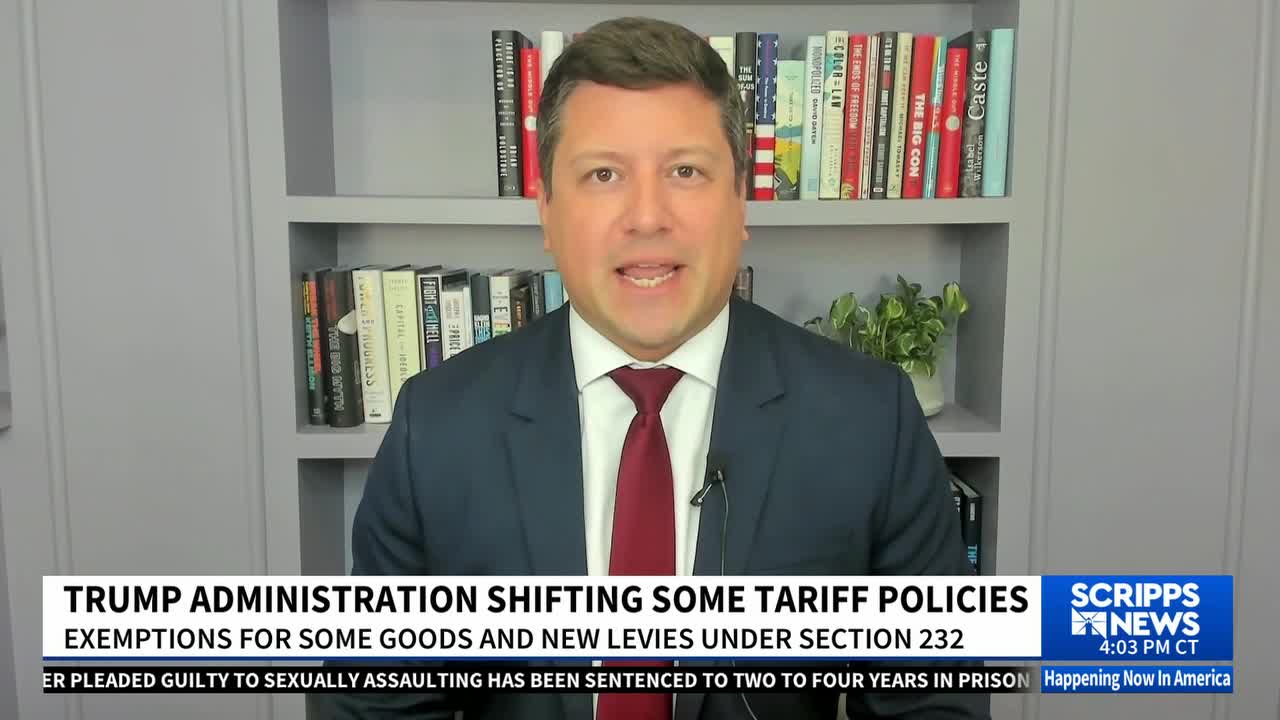President Trump threatened new tariffs targeting Colombia while accusing the country's president of encouraging drug production as his administration continues to modify its trade policies amid legal challenges.
The move marks the latest update in the administration's tariff policies, which have shifted and been modified many times since first rolling out in April.
These policy shifts also come ahead of a Supreme Court hearing in early November whereby the administration could be forced to pay back many of the levies if it loses.
The Trump administration's tariff policies continue to shift as officials adapt their implementation strategies.
"I think there's a lot of adaption about how they're implemented and where they're implemented," Everett Eissenstat, who was the deputy director of the National Economic Council during President Trump's first term, told Scripps News.
The White House last month exempted dozens of products from its reciprocal tariffs. The exemption list now includes some lumber products and certain metals.
In a statement to Scripps News, the White House said the exempted goods are "largely unavailable natural resources."
"There are certain products that just aren't made here in the United States, and that are needed for as inputs into manufacturing or production," Eissenstat said.
Eissenstat said the president has also shown a willingness to adjust tariffs based on economic commitments from other countries to invest in the U.S.
RELATED STORY | Trump says he may 'go watch' as Supreme Court weighs his power to impose sweeping tariffs
Meanwhile, the White House is using another trade law — "Section 232" — to expand some tariffs.
On Friday, the president used that to add 25% tariffs on the import of some trucks and truck parts, and a 10% tariff on imported buses.
Many businesses up to this point have eaten the costs for tariffs, but there are concerns that won't last.
"What we've seen so far is that businesses have by and large tried their best not to pass on tariff costs. They've been waiting to see how Trump's trade policy will shake out before making those price hikes on consumers. But that's getting more difficult as the days go on," Eissenstat said.
"We're in a period of these tariffs are going to stick in my mind for quite some time," he added.
The Trump administration has continued to urge the Supreme Court to uphold President Trump's power to impose sweeping global tariffs on virtually all goods imported into the country.
On Sunday, the president said a ruling against his administration would "literally destroy the United States."
If the court finds that President Trump overstepped his authority and strikes down his tariffs, an estimated 70% of his tariffs could fall, and the U.S. would have to pay back what economists estimate is $165 billion in tariff revenue.
The court is set to hear oral arguments on November 5.




